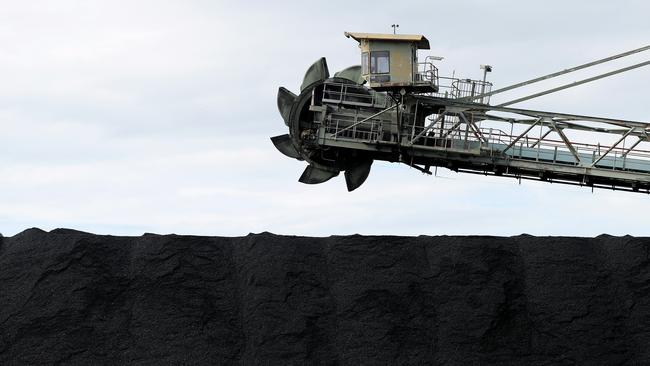Vales Point coal power station faces uncertain future as AGL Energy opposes quick rule change
Opposition from AGL has scuppered Delta Electricity’s hopes to guarantee financing into 2025, leaving the future of its Vales Point coal power station up in the air.
The future of a major NSW coal power station, Vales Point, faces fresh uncertainty after efforts to rush through a rule change on guaranteed financing were opposed by a rival coal operator, AGL Energy.
The operator of Vales Point, Delta Electricity, in October said its current bank guarantee is due to expire at the end of 2024, and its current financier – believed to be Macquarie – told it last year that due to its updated environmental, social and governance policies, it would not be extending a financing facility.
Delta said it had engaged an experienced financial adviser but “it has been identified during the refinancing process that 13 of the 15 lenders declined due to ESG constraints, which included the big four Australian banks’’.
ESG guidelines inhibit investments in coal despite the fact that the fuel continues to be the largest source of electricity in Australia.
The Australian Energy Markets Commission quickly proposed a rule change that if unopposed would have been expedited into law by the end of the year.
In a dissension, AGL Energy said it believed the rule change would be consequential and the country’s energy rules allow for sufficient flexibility that even if Delta was unable to secure a new guarantor, it would most likely not be suspended. As a result, AGL said, a more thorough process should be implemented.
By the letter of the law, Delta would face market suspension but sources familiar with the situation said authorities were desperately seeking mitigation measures as NSW needed all the electricity capacity on hand at present.

NSW’s energy grid, as with the entire east coast of Australia, is precariously balanced. A spate of coal power stations have shuttered as they struggle to remain economically viable amid the rush of renewable energy projects, but the state is not building replacement capacity quickly enough. AGL said it was not necessarily opposed to the rule change but allowing it could create unintended consequences in the future.
Ralph Griffiths, general manager of policy and markets regulation at AGL, said the AEMC must be mindful of apparent small changes causing bigger impacts.
“Robust prudential arrangements are critical to ensuring that market participants are shielded from the risk of a financial exposure where another participant cannot meet their financial obligations to the market. There is a significant risk of unintended consequences arising from what may appear to be small changes,” Mr Griffiths wrote to the AEMC.
The Australian understands Delta has some capacity to continue generating into the National Electricity Market for several months to come, but industry figures said a solution would be needed in the long run – especially with irregular market conditions and unreliable coal performance.
The opposition from AGL means a months-long process will likely be implemented, pushing out any rule change well into next year. An extended delay would stoke significant uncertainty about whether Delta would breach the so-called notice of market credit limit.
Such an event would likely occur should Vales Point suffer an unplanned outage – and the coal facility is currently in the midst of significant maintenance – or a sustained period of negative wholesale pricing.
An immediate suspension when Delta’s guarantee arrangement expires is not expected but Delta could be in breach at some point in early 2025.
Negative wholesale pricing occurs when there is more electricity supply than demand. These happen frequently because of Australia’s record proliferation of rooftop solar and the inability of coal power stations to stop producing power.
The delicate balance was encapsulated by the state of emergency that plagued the state’s energy market this week.
A series of outages, both planned maintenance and unplanned faults, coincided with a spike in temperatures. With tight supplies, the state urged households to cut back usage and big consumers were paid to curtail demand in a desperate attempt to avoid blackouts.




To join the conversation, please log in. Don't have an account? Register
Join the conversation, you are commenting as Logout